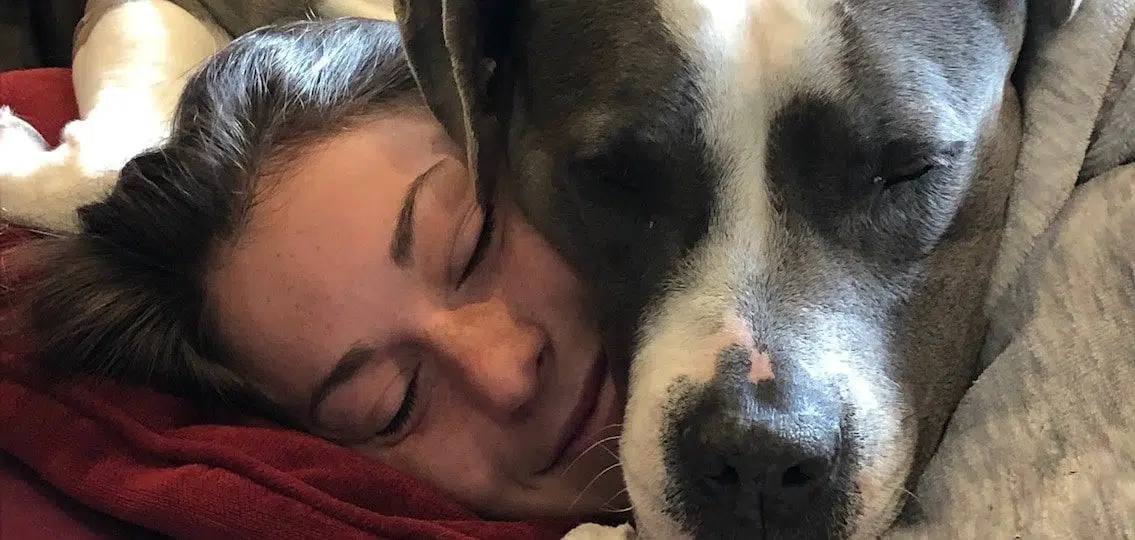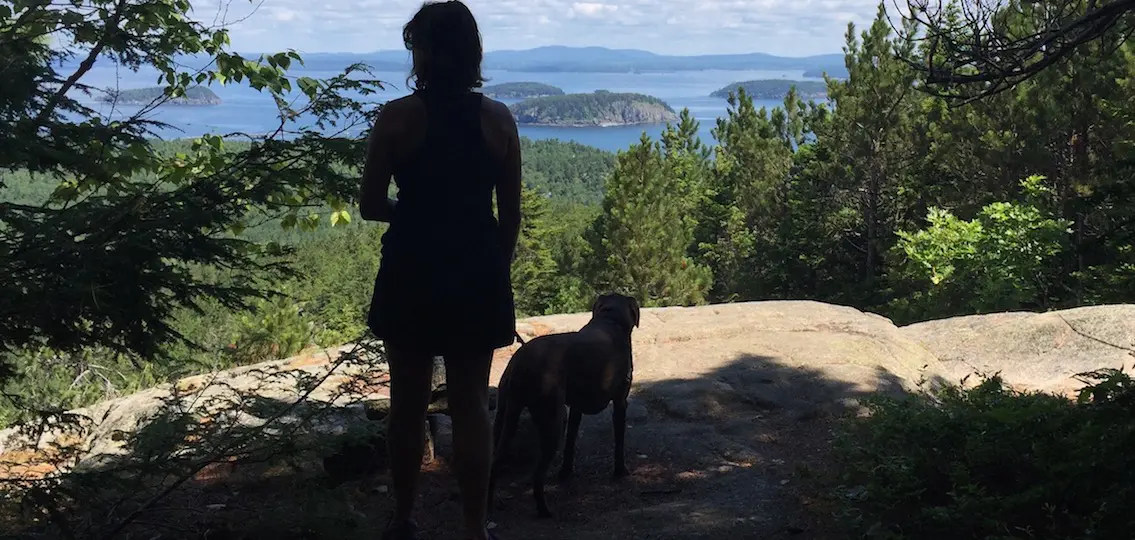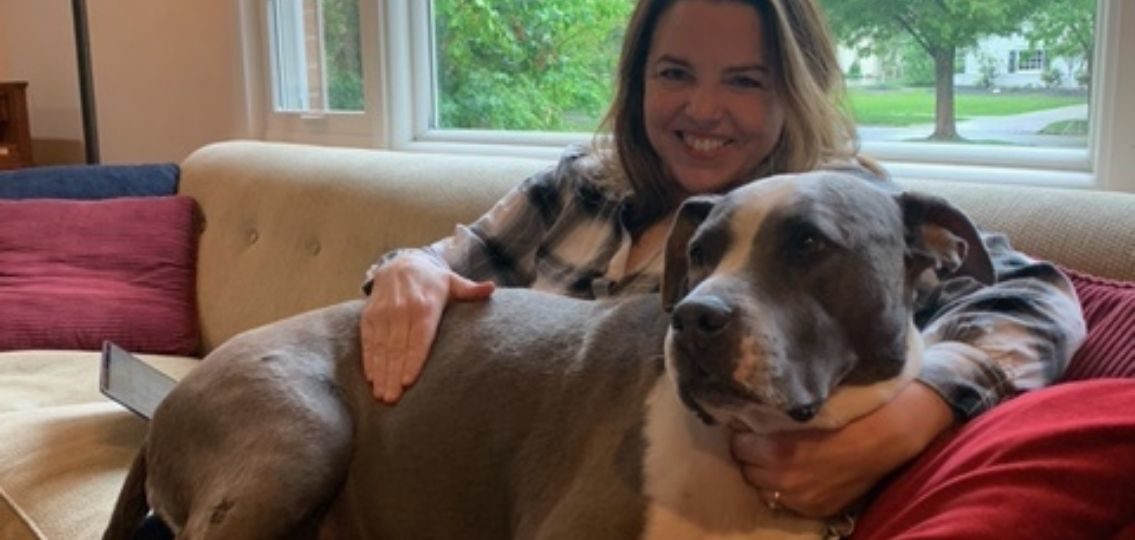Like so many others, we rescued a dog during the pandemic. (Or did she rescue us?) My plan was to just foster her, but my family and the dog had other ideas. After three months, McKenna, the pandemic pup, became a permanent member of our family.

When I walk her in the rain, wake up aching because she has hogged the bed, or have to hold on with all my might when she takes off after a dog or a squirrel, I remind myself of the solace and joy she has brought us. I guess you could say that she was our pandemic project. We have more pictures of her than we do of our middle child.
Even though we don’t know how old McKenna is or what her life was like before we brought her home, we’ve gotten to know her pretty well.
Yet, our pandemic pup has been living in a socially distanced bubble just like the rest of us.
So we weren’t sure how she would react when other people came into our house. We didn’t know how she’d behave when we actually stopped to talk with neighbors outside. And we had no idea if she’d get along with any other dogs.
We got the answer to one of our questions a few weeks ago when I invited a few colleagues over to work on a project. McKenna was a perfect hostess, welcoming Jessica and Sharon at the door with a wagging tail. She continued to make a big fuss over her guests, and when Sharon went to sit on the couch, McKenna, our 86-pound lap dog, sat right down on top of her! While she’s certainly sweet, McKenna has some learning to do about boundaries and personal space.
McKenna’s not the only one who may have some work to do. Relearning how to be with other people is proving to be a bit of a challenge for all of us, especially teens. We’re all feeling a little out of shape when it comes to socializing. While muscle memory will kick in to help teens feel more at ease, re-entering the world is, indeed, a process.
I realize that there’s a lot we can learn from our pandemic pup about how to support our teens as they return to everyday life.
Taking Cues from Our Pandemic Pup
1. Meet them where they are
While McKenna is proving that she’s comfortable around people, our pandemic pup not so thrilled in the presence other dogs. That can be a bit of a challenge since it seems as though everyone in our neighborhood has at least one pup. But we’re not going to push her to make friends just yet. In fact, it may turn out that she’ll always prefer the company of a few good friends. That’s okay with us as long as she’s happy. Our teens may have also decided to keep their circles small for now, and maybe they need some extra time before they lean back in to their friends.
2. Pay Attention
When we walk McKenna, we leave our phones at home so we can be completely present. We get the lay of the land, notice potential problems, and do what we can to prevent unpleasant predicaments. Of course, we aren’t able to detect every single threat, but the more time we spend with our pandemic pup, the more our ability to not only spot possible threats but also to work through obstacles has improved. Even though our teens may act like they don’t want us to, making the effort to give them our undivided attention pays off, too.
3. Don’t expect progress to be linear
McKenna has her ups and downs. On her good days, she leaves the squirrels and chipmunks alone. On her not so good days, her prey drive takes over and she rebels, giving us a good workout as she tugs on her leash. Lately, there have been lots of good days, but no dog – or teen – is perfect. We’ll continue to praise the positives and be prepared for the pitfalls.
4. Validate their feelings
A trainer told us that the way to calm McKenna down when she gets agitated is to acknowledge what she sees. Once we say it out loud, McKenna makes eye contact with us and settles down. Then we give her a treat. I like to think that she recognizes that we are validating her. The treats for our teens are different, but the strategy is the same. Empathy goes a long way.

Change is hard, and we’ll all–pandemic pups and people–have to be patient with ourselves and one another as we enter this next phase. While some of us may be ready to jump right back in, others may need a little extra time and encouragement. And a treat or two.




